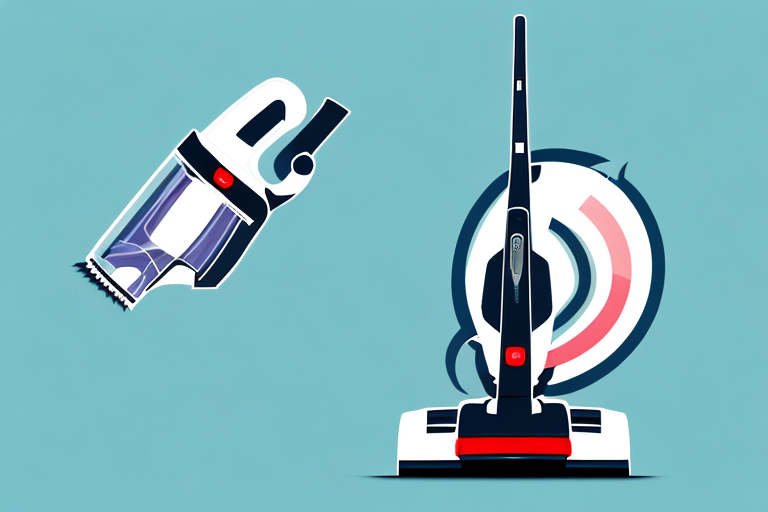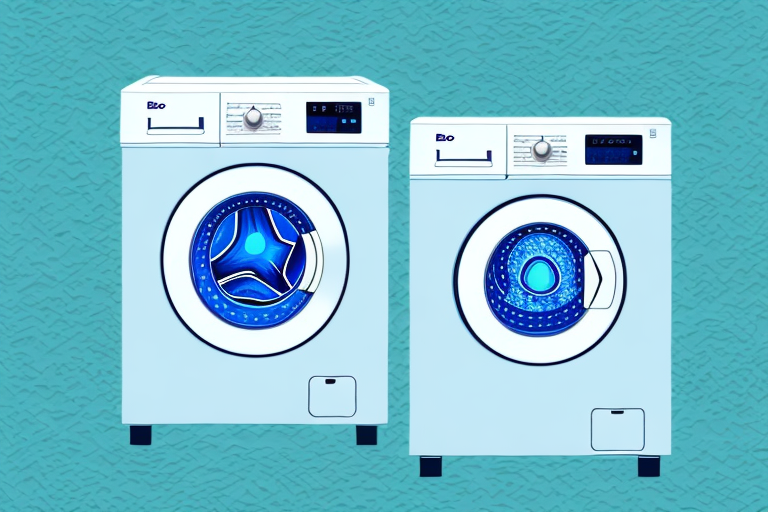As the temperature drops and colder weather sets in, the chances of catching a cold are on the rise. With this in mind, many people are turning to air purifiers as a way of preventing the spread of colds and reducing the severity and duration of symptoms. But do air purifiers actually work? In this article, we will delve into the topic and answer all your questions regarding the efficacy of air purifiers in fighting colds.
How do air purifiers work?
Air purifiers are designed to remove harmful particles from the air, including bacteria, viruses, and pollutants. They work by using filters to trap these particles and prevent them from circulating in the air. Some air purifiers also use ionizers to release negatively charged ions that attach to airborne particles and cause them to drop to the floor, where they can be easily vacuumed up.
There are different types of filters used in air purifiers, including HEPA filters, activated carbon filters, and UV-C light filters. HEPA filters are highly effective in removing small particles, such as pollen and dust, while activated carbon filters are great at removing odors and chemicals. UV-C light filters use ultraviolet light to kill bacteria and viruses.
It is important to note that air purifiers are not a substitute for good ventilation and proper cleaning practices. Regularly opening windows and doors, using exhaust fans, and keeping surfaces clean can also help improve indoor air quality.
Can air purifiers prevent the spread of colds?
Air purifiers can be effective at preventing the spread of colds by removing airborne particles that can cause the virus to spread. However, it is important to note that air purifiers are not a replacement for good hygiene practices such as washing your hands regularly, covering your mouth when you cough or sneeze, and avoiding close contact with people who are sick.
It is also important to choose the right type of air purifier for your needs. HEPA filters are the most effective at removing airborne particles, including viruses, but not all air purifiers have HEPA filters. Additionally, the size of the room and the number of people in it can affect the effectiveness of the air purifier.
While air purifiers can help prevent the spread of colds, they are not a guarantee. It is still possible to contract a cold even with an air purifier in use. Therefore, it is important to continue practicing good hygiene habits and taking other precautions to protect yourself and others from getting sick.
What types of air purifiers are best for fighting colds?
The best types of air purifiers for fighting colds are those with HEPA filters, which are designed to capture airborne particles as small as 0.3 microns. HEPA filters are highly effective at trapping viruses, bacteria, and other allergens. Air purifiers with UV-C light can also be effective at killing bacteria and viruses that are trapped in the filter.
Another type of air purifier that can be effective at fighting colds is one with an activated carbon filter. Activated carbon filters can remove odors and chemicals from the air, which can help alleviate symptoms of colds such as headaches and nausea. Additionally, air purifiers with ionizers can help remove particles from the air by charging them and causing them to stick to surfaces, which can help reduce the spread of colds.
It is important to note that while air purifiers can help reduce the spread of colds, they should not be relied upon as the sole method of prevention. Regular hand washing, covering your mouth and nose when coughing or sneezing, and avoiding close contact with sick individuals are also important steps in preventing the spread of colds.
Are HEPA filters effective at capturing cold viruses?
Yes, HEPA filters are highly effective at capturing cold viruses. According to the Environmental Protection Agency, HEPA filters can capture over 99% of airborne particles, including viruses that cause colds.
HEPA filters are commonly used in hospitals and medical facilities to prevent the spread of airborne diseases. They are also recommended for use in homes, especially during cold and flu season, to help reduce the risk of infection.
It is important to note that while HEPA filters can capture cold viruses, they do not kill them. It is still important to practice good hygiene, such as washing your hands frequently and covering your mouth and nose when coughing or sneezing, to prevent the spread of cold viruses.
How often should you change the filter in your air purifier to maintain its efficacy against colds?
The frequency with which you should change the filter in your air purifier depends on the manufacturer’s instructions. As a general rule, it is recommended to change HEPA filters every six months to maintain their efficacy. However, you should check the manufacturer’s recommendations for your specific air purifier model.
It is important to note that the frequency of filter changes may also depend on the air quality in your home. If you live in an area with high levels of pollution or have pets, you may need to change the filter more frequently. Additionally, if someone in your household has a weakened immune system or respiratory issues, it may be necessary to change the filter more often to ensure the air purifier is working at its best.
When changing the filter, it is important to follow the manufacturer’s instructions carefully. Make sure to turn off the air purifier and unplug it before removing the old filter. Dispose of the old filter properly and insert the new filter according to the manufacturer’s instructions. Some air purifiers may also require additional maintenance, such as cleaning the pre-filter or replacing the activated carbon filter, so be sure to check the instructions for your specific model.
Do air purifiers work better in certain rooms of the house than others for preventing colds?
Air purifiers can be effective in any room of the house, but they may work better in areas where the air is more stagnant, such as bedrooms or dens. It is recommended to place the air purifier as close to the source of the pollutants as possible for maximum effectiveness.
Additionally, air purifiers with HEPA filters are particularly effective at capturing airborne viruses and bacteria, which can help prevent the spread of colds and other illnesses. It is important to regularly replace the filter in your air purifier to ensure it continues to work effectively.
However, it is important to note that while air purifiers can help improve indoor air quality and reduce the risk of colds, they should not be relied upon as the sole method of prevention. Other measures such as frequent hand washing, avoiding close contact with sick individuals, and staying home when feeling unwell are also important in preventing the spread of colds and other illnesses.
Can using an air purifier reduce the severity and duration of a cold once you have already caught it?
While air purifiers can help prevent the spread of a cold, they are not a substitute for medical treatment. However, using an air purifier can help to reduce the amount of airborne particles in the air, which may make breathing easier and help to alleviate some of the symptoms of a cold.
Additionally, air purifiers can help to remove allergens and irritants from the air, which can exacerbate cold symptoms. This can be especially helpful for individuals with allergies or asthma, who may experience more severe symptoms when they have a cold.
It is important to note that not all air purifiers are created equal. Look for models that use HEPA filters, which are designed to capture small particles like viruses and bacteria. Some air purifiers also use UV-C light technology to kill germs and viruses. However, it is still important to practice good hygiene and seek medical treatment if necessary when dealing with a cold.
What other steps can you take to complement the use of an air purifier in preventing and treating colds?
In addition to using an air purifier, there are several other steps you can take to prevent and treat colds, including washing your hands regularly, covering your mouth when you cough or sneeze, getting plenty of rest, and drinking fluids to stay hydrated. Over-the-counter remedies such as decongestants and pain relievers can also help to alleviate symptoms.
It is also important to maintain a clean and healthy living environment. This includes regularly cleaning surfaces, such as doorknobs and countertops, and changing air filters in your home’s HVAC system. Additionally, avoiding close contact with individuals who are sick and staying home if you are feeling unwell can help to prevent the spread of colds.
How does humidity affect the performance of an air purifier against colds?
Humidity levels can affect the performance of an air purifier against colds. Low humidity levels can cause airborne particles to stay in the air longer, making it more difficult for the air purifier to capture them. On the other hand, high humidity levels can cause mold and mildew to grow, which can exacerbate allergies and asthma. It is recommended to keep humidity levels between 30-50% for optimal air quality.
In conclusion, air purifiers can be an effective tool in preventing the spread of colds and reducing the severity and duration of symptoms. However, they are not a substitute for good hygiene practices and medical treatment when necessary. By following the tips outlined in this article and using an air purifier in conjunction with other preventative measures, you can help to improve the quality of the air in your home and minimize the impact of cold season on your health.
Another factor to consider when using an air purifier during cold season is the size of the room. Air purifiers are designed to work within a certain square footage, so it is important to choose the right size for your space. A purifier that is too small for the room will not be effective in capturing all the airborne particles, while a purifier that is too large may be unnecessarily expensive and consume more energy than needed.
Additionally, it is important to regularly clean and maintain your air purifier to ensure optimal performance. This includes changing the filters as recommended by the manufacturer and cleaning the unit itself to prevent the buildup of dust and other particles. By taking these steps, you can ensure that your air purifier is working at its best to keep you healthy during cold season.



